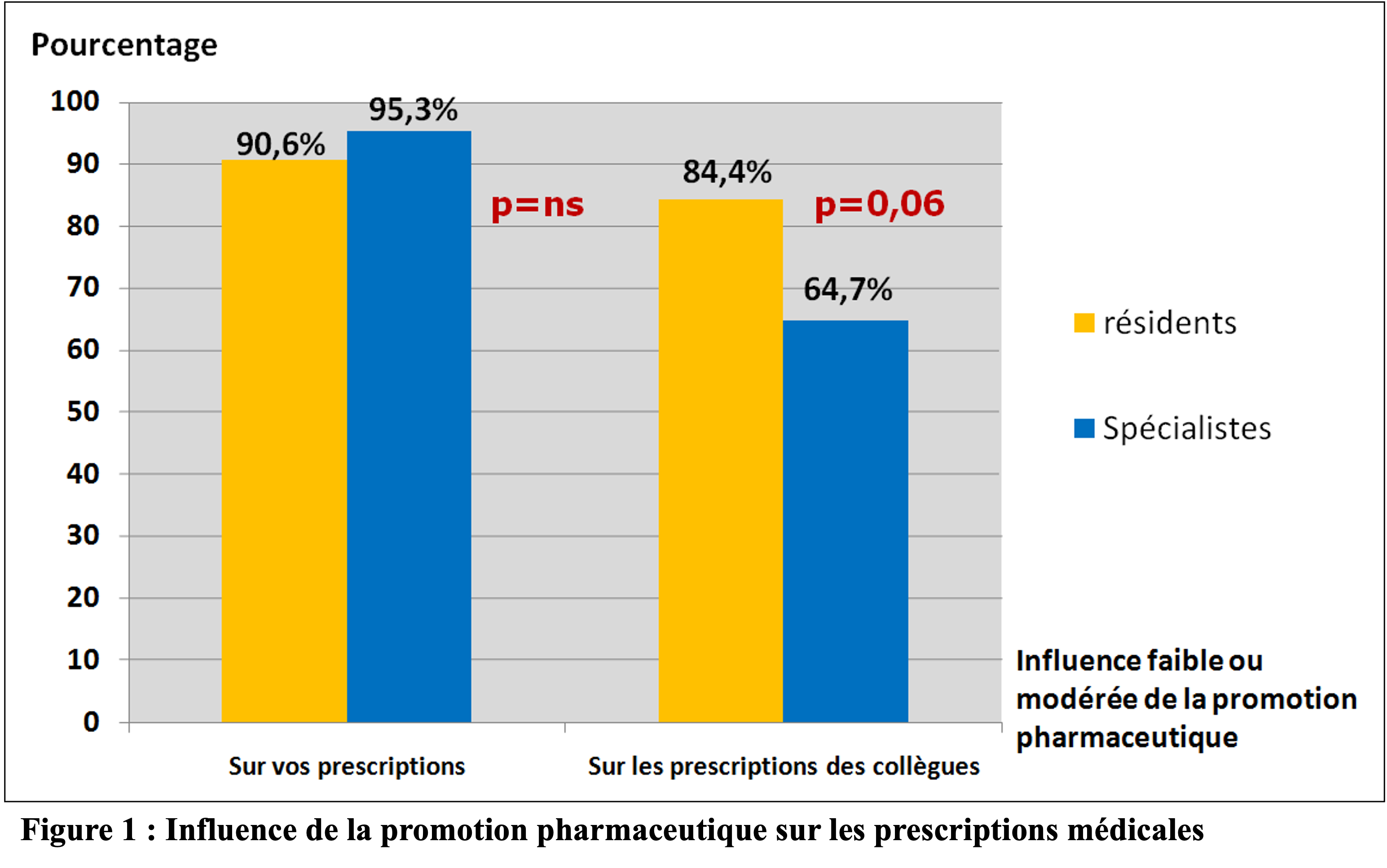Physicians’ attitudes towards pharmaceutical promotion: investigation in endocrinology
##plugins.themes.academic_pro.article.main##
Abstract
Background: Recently, special attention has been paid to the relationship between health professionals and the pharmaceutical industry, which could influence medical prescriptions. The aim of this work was to evaluate the attitude of Tunisian endocrinologists towards pharmaceutical promotion.
Methods: It was a cross-sectional study based on an anonymous 9-item survey about the attitudes and behaviors of physicians towards the pharmaceutical promotion. The study included 120 residents and endocrinology specialists.
Results: One-third of the physicians did not complete the survey. We analyzed 75 responses of 32 residents and 43 specialists. The inexpensive gifts were appreciated by most participants. Costly gifts were judged less frequently appropriate. However, these expensive gifts were received or desired by many participants.
Among residents, 9.4% thought that their prescriptions would be very influenced by the promotion while they estimated that 15.6% of their colleagues would be (p=ns). This difference was significant among the specialists: respectively 4.7% and 35.3% (p=0.002). Training about conflict of interest is insufficient according to 96.8% of residents and 97.6% of specialists (p=ns). Contact between learners and medical visitors should be prohibited according to 9.4% of residents and 36.6% of specialists (p=0.007).
Conclusions: Most participants confirmed that they had links of interest with the pharmaceutical industry, but they thought that this had no influence on their prescriptions. Many studies have shown that gifts, even small ones, are very effective in subtly influencing doctors' therapeutic attitudes. Awareness is needed to ensure an independent medical prescription.
Keywords:
Attitude, Physicians, Laboratories, Drugs, Conflict of interest##plugins.themes.academic_pro.article.details##

This work is licensed under a Creative Commons Attribution-NonCommercial-NoDerivatives 4.0 International License.
References
- - Bion J, Antonelli M, BlanchL, Curtis JR, Druml C, Du B, et al. White paper : statement on conflicts of interest. Intensive Care Med. 2018;44(10):1657-1668.
- - Conseil de l’Europe. La santé publique et les intérêts de l’industrie pharmaceutique: comment garantir la primauté des intérêts de santé publique? Assemblée parlementaire ; 2015.
- - Lajmi H, Lajmi M, Hmaied W. Les caractéristiques du conflit d’intérêt dans la relation médecin- délégué médical. Tun med. 2022;100(02):127-132.
- - Steinman MA, Shlipak MG, McPhee SJ. Of principles and pens: attitudes and practices of medicine house staff toward pharmaceutical industry promotions. Am J Med. 2001;110(7):551-7.
- - Krumholz HM, Ross JS, Presler AM, Egilman DS. What have we learnt from Vioxx? BMJ. 2007; 20;334(7585):120-3
- - Morelle A, Bensadon AC, Marie E. Enquête sur le Mediator. Inspection Générale des Affaires Sociales (IGAS), janvier 2011 : 260 pages. http://www.ladocumentationfrancaise.fr/
- - Sierles FS, Brodkey AC, Cleary LM, McCurdy FA, Mintz M, Frank J, et al. Medical students’ exposure to and attitudes about drug company interactions: a national survey. JAMA. 2005;294:1034-1042.
- - Jouquan J. Influence de l’industrie pharmaceutique sur la formation des étudiants en médecine : une situation paradigmatique de l’exigence d’une formation plus radicale à la pensée critique. Pédagogie Médicale. 2016;17(3):141–146.
- - Zipkin DA, Steinman MA. Interactions between pharmaceutical representatives and doctors in training: a thematic review. J GenIntern Med. 2005;20(8):777-86.
- - Sagarin BJ, Cialdini RB, Rice WE, Serna SB. Dispelling the illusion of invulnerability: the motivations and mechanisms of resistance to persuasion. J Pers Soc Psychol. 2002;83(3):526-41.
- - Gibbons RV, Landry FJ, Blouch DL, Jones DL, Williams FK, Lucey CR, et al. A comparison of physicians’ and patients’ attitudes towards pharmaceutical industry gifts. J GenIntern Med. 1998;13:151-154.
- - Fleischman W, Agrawal S, King M, Venkatesh AK, Krumholz HM, McKee D, et al. Association between payments from manufacturers of pharmaceuticals to physicians and regional prescribing: cross sectional ecological study. BMJ. [En ligne]. 2016 Aout [18/08/2016];354:[8 pages]. Disponible à l’URL: http://dx.doi.org/10.1136/bmj.i4189.
- - Orlowski JP, Wateska L. The effects of pharmaceutical firm enticements on physician prescribing patterns. Chest. 1992;102:270-273.
- - O’Keefe DJ. Persuasion: theory and research. 2ème édition. Thousand Oaks, California : Sage Publications; 2002.
- - Brennan TA, Rothman DJ, Blank L, Blumenthal D, Chimonas SC, Cohen JJ,et al. Health industry practices that create conflicts of interest a policy proposal for academic medical centers. JAMA.2006;295(4):429-33.
- - Adair RF, Holmgren LR. Do drug samples influence resident prescribing behavior? A randomized trial. Am J Med. 2005;118:881-884.
- - Boltri JM, Gordon ER, Vogel RL. Effect of antihypertensive samples on physician prescribing patterns. Fam Med. 2002;34:729-731.
- - Toussaint B, Carré-Pétraud S. Qui paie ? Prescrire. 2018;38(416):401.
- - DeJong C, Aguilar T, Tseng CW, Lin GA, BoscardinWJ, Dudley RA. Pharmaceutical industry–sponsored meals and physician prescribing patterns for medicare beneficiaries. JAMAIntern Med. 2016;1;176(8):1114-1122.
- - Riaz H, Khan MS, Riaz IB, Raza S, Khan AR, Krasuski RA. Conflicts of Interest and Outcomes of Cardiovascular Trials. Am J Cardiol. 2016;117:858-860.
- - Cosgrove L, BursztajnHJ, Erlich DR, Wheeler EE, Shaughnessy AF. Conflicts of interest and the quality of recommendations in clinical guidelines. J Eval Clin Pract. 2013;19(4):674-81.
- - Lundh A, Lexchin J, Mintzes B, SchrollJB, Bero L. Industry sponsorship and research outcome (Review). Cochrane DatabaseSystRev. 2017 Feb16;2:MR000033.


